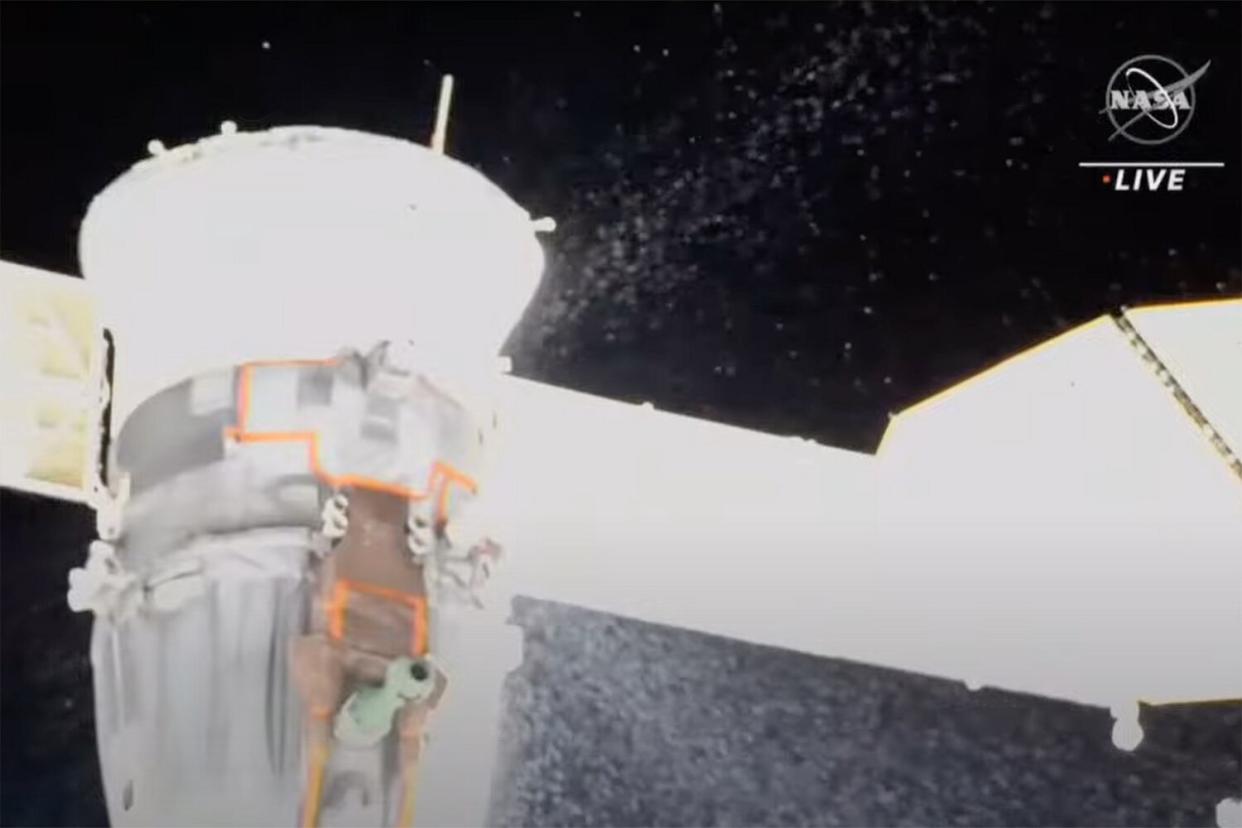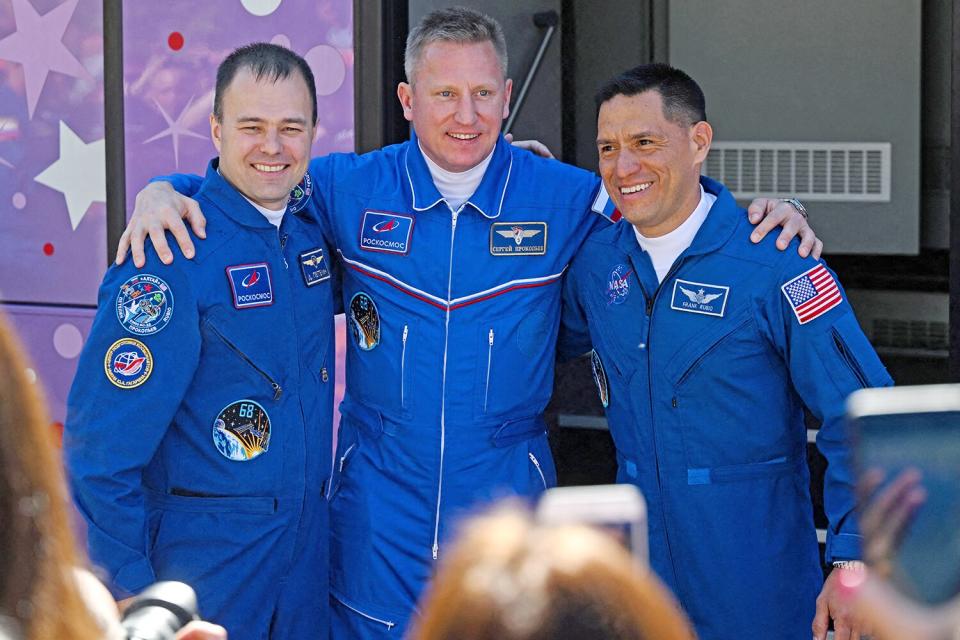Rescue Planned for ISS Crew Whose Ride Home Was Hit by Micrometeoroid: 'Space Is Not a Safe Place'

- Oops!Something went wrong.Please try again later.
A mission was announced Wednesday to rescue three crew members of the International Space Station (ISS) after the vessel they rode into orbit in September sustained a leak.
Russian space agency Roscosmos plans to launch the spacecraft Soyuz MS-23 on Feb. 20 so that cosmonauts Sergey Prokopyev and Dmitri Petelin as well as NASA astronaut Francisco Rubio will have a ride back home to earth, CNN and Reuters reported.
Meanwhile, MS-22, the damaged spacecraft that brought the crew to the ISS, will return to earth without any passengers about a week or two upon the arrival of MS-23, according to CNN.
MS-22 experienced damage of a tiny puncture less than 1 millimeter wide after getting struck by a micrometeoroid while being docked outside the ISS on Dec. 14. As a result, the vessel began to spray radiator coolant into space, causing the cosmonauts to halt their planned spacewalk.

Nasa Tv/UPI/Shutterstock
According to Joel Montalbano, ISS program manager at NASA's Johnson Space Center in Houston, MS-22 is deemed unfit to serve as a transportation vehicle for the crew due to the leak which could raise the temperature in the cabin to 100 degrees or more along with high humidity, The New York Times reported.
The crew who were scheduled to return to earth in March will now have to extend their stay by several more months following the change of plans.
"They are ready to go with whatever decision we give them," Montalbano, said in a news conference on Wednesday, per Reuters. "I may have to fly some more ice cream to reward them."

NATALIA KOLESNIKOVA/AFP/Getty
Never miss a story — sign up for PEOPLE's free daily newsletter to stay up-to-date on the best of what PEOPLE has to offer, from juicy celebrity news to compelling human interest stories.
However, in the event of an emergency, while waiting for MS-23 to arrive, MS-22 would be considered to be used as a rescue vessel.
"When the crew will have a real threat to life on the station, then probably the danger of staying on the station can be higher than going down in an unhealthy Soyuz," Sergei Krikalev, Russia's chief of crewed space programs, explained.
Krilavev said the agency and the crew were aware of the danger and possibility of such damages occurring in space.
RELATED VIDEO: Plane Makes Emergency Landing in Chicago After Passenger's Laptop Catches Fire
"Space is not a safe place, and not a safe environment. We have meteorites, we have a vacuum and we have a high temperature and we have complicated hardware that can fail," Krikalev added. "Now we are facing one of the scenarios ... we are prepared for this situation."

